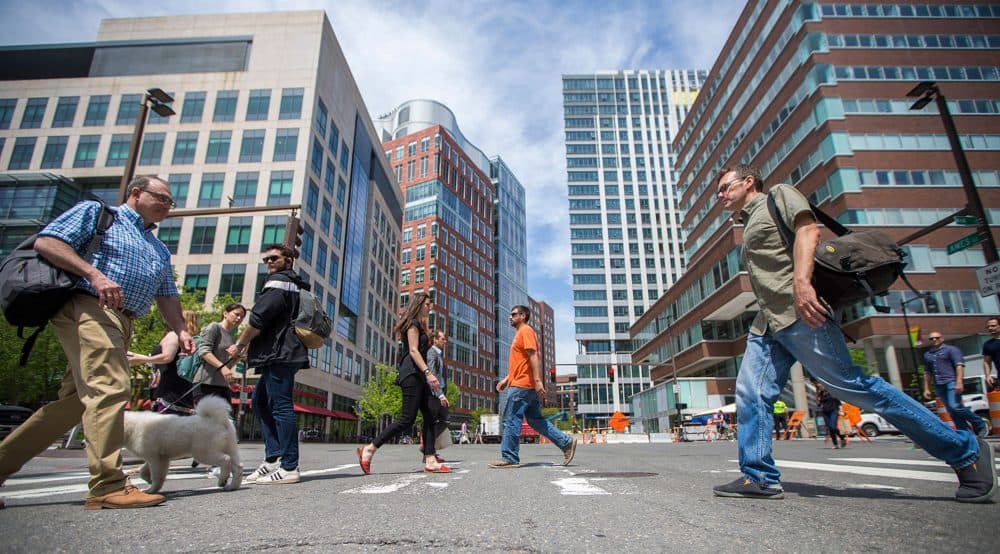Advertisement
Mass. Businesses Grapple With Uncertainty As Partial Ban On Noncompetes Takes Effect

Massachusetts businesses are grappling with uncertainty about how to contend with a partial ban on noncompete agreements that takes effect in Massachusetts on Monday.
Under a law signed in August by Gov. Charlie Baker, workers classified as "non-exempt" under the federal Fair Labor Standards Act can no longer be blocked from joining competing businesses after leaving their jobs. Non-exempt workers are often low wage, hourly employees.
The new rules are less clear for higher ranking, salaried workers, who can still be bound by noncompete agreements for a year after leaving their jobs.
The law includes a "garden leave" provision that allows employers to pay 50 percent of a worker's salary during the year in which a noncompete is enforced. But the half-salary payment is merely a benchmark; the law allows for "other mutually agreed upon consideration between the employer and the employee."
Attorneys advising companies on how to comply with the law say they and their clients have been left to make educated guesses about how much "consideration" is really required.
"This is the biggest question mark, by far," said Michael Rosen, a partner at Foley Hoag in Boston. "The simplest thing to do is to actually provide the garden leave that's defined in the law, but that's expensive. There is the alternative that's built into the law for other consideration; exactly what that should consist of is something that we're all wrestling with.
"I think every lawyer in town, we've been talking among ourselves: 'What are you doing? What are you seeing?'"
Rosen said some companies are offering higher salaries; others are negotiating flat severance payments.
Tony Bongiorno, a partner at McDermott, Will & Emery in Boston, added stock options to the list of alternative compensation packages companies are offering.
Whatever form the compensation takes, the goal for companies is to pay less than the half salary recommended in the new law. The risk, however, is that a court could later invalidate a contract if the compensation is too low.
"When these cases play out in a courtroom and someone goes in to enforce a noncompete, so much of what happens is based on optics," Bongiorno said. "Judges are really good at figuring out what's really going on here. If one side looks incredibly reasonable, and one side looks incredibly unreasonable, the party that is wearing the unreasonable hat is going to have a really hard time prevailing."
Garden leave was among the most contentious points of debate during a years-long legislative process that failed to produce a signed bill in previous sessions.
The New England Venture Capital Association, an opponent of noncompetes, lobbied to set the half-salary provision in stone. Associated Industries of Massachusetts, a trade group representing more than 4,000 employers in the state, fought restrictions on noncompetes, arguing the contracts are necessary to protect intellectual property.
The bill signed by Baker represented a compromise.
Beth Myers, president of the Massachusetts Employment Lawyers Association, called the law "a huge win for employees, in general," noting that many workers are now free from having to sign noncompete agreements in the future.
But Myers said the ambiguous garden leave provision is "an area that may end up causing harm to employees."
"They may be strong-armed into accepting consideration that is much less valuable than the garden leave pay description" in the law, she said. "That's certainly an area where employers are going to test the limits."
